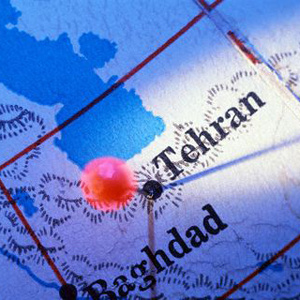Sanctions Will Not Stop Iran
By Mohammad Kohandel, university professor and global economy analyst

Obviously, sanctions are not harmless. However, in today’s world, it is somehow naïve to think that a country under sanctions cannot supply its demands. Iran has shown that it can gain what it needs by two means. First, with Iran’s extensive maritime and ground borders, there are many countries in the world which can supply its demands. This makes the full realization of sanctions impossible. Second, a gap exists between European countries, and between European countries and the United States, between the Capitalist bloc and the re-rising East bloc that provides Iran and other countries under sanction an opening to meet their demands. The only problem is the added prices.
Next point is that the sanctions have actually boosted Iran’s sense of self-belief. They fostered creativities that would not have been realized otherwise. New institutions and disciplines have been established to supply and even commercialize the countries basic demands. Therefore, there are two sides to the sanctions: one is the self-reliance Iran gains and the other side is the added expense Iran has to pay.
Economic Partnership as an Alternative to Sanctions
Iran aspires for a distinguished role in the global economic structure. Furthermore, it is asking for a role in collective management of the global affairs. However, it is clear that West’s possible nod to Iran’s larger role in economic structures would be just a lip service, since that would mean an Iran that becomes more powerful day by day. That is what neither of the world powers wants. So Iran’s participation in major global affairs is unlikely.
Iran’s participation in global economic structures is against the basic principles and interests of some major powers. They are not really willing to let Iran enter the game, despite Iran’s continuous call for a larger role in regional and international institutes and partnerships.
Thus, any decision about Iran, whether it is further sanctions or bringing Iran into the game, will increase Iran’s power and that is what raises concern among Iran’s opponents. All they are trying to do is containing Iran and stifling its progress. Global powers have decided to institutionalize the capitalist paradigm in the world and have taken their biggest steps by establishing international organizations such as the International Monetary Fund. However, the changing relations between nations and states call for a change in the existing structures and strategies. The capitalist system is apparently becoming weaker. Even in its last meeting in Turkey, head of the International Monetary Fund announced that U.S. and other members of the capitalist block economies are witnessing a downfall and emerging economies are replacing them.
Iran has also grasped the opportunity to create a paradigm hegemony for itself while its opponents do not have the required freedom to counter its efforts, there are differences among countries over the efficiency of sanctions, the capitalist system is becoming increasingly weak and its powerful members are giving their place to others.
Unlike what is claimed, Iran is not the basic concern of countries which are pressurizing it. Iran is on the right track in economic, political and cultural domains and that is what really worries its enemies.
Next point is that the sanctions have actually boosted Iran’s sense of self-belief. They fostered creativities that would not have been realized otherwise. New institutions and disciplines have been established to supply and even commercialize the countries basic demands. Therefore, there are two sides to the sanctions: one is the self-reliance Iran gains and the other side is the added expense Iran has to pay.
Economic Partnership as an Alternative to Sanctions
Iran aspires for a distinguished role in the global economic structure. Furthermore, it is asking for a role in collective management of the global affairs. However, it is clear that West’s possible nod to Iran’s larger role in economic structures would be just a lip service, since that would mean an Iran that becomes more powerful day by day. That is what neither of the world powers wants. So Iran’s participation in major global affairs is unlikely.
Iran’s participation in global economic structures is against the basic principles and interests of some major powers. They are not really willing to let Iran enter the game, despite Iran’s continuous call for a larger role in regional and international institutes and partnerships.
Thus, any decision about Iran, whether it is further sanctions or bringing Iran into the game, will increase Iran’s power and that is what raises concern among Iran’s opponents. All they are trying to do is containing Iran and stifling its progress. Global powers have decided to institutionalize the capitalist paradigm in the world and have taken their biggest steps by establishing international organizations such as the International Monetary Fund. However, the changing relations between nations and states call for a change in the existing structures and strategies. The capitalist system is apparently becoming weaker. Even in its last meeting in Turkey, head of the International Monetary Fund announced that U.S. and other members of the capitalist block economies are witnessing a downfall and emerging economies are replacing them.
Iran has also grasped the opportunity to create a paradigm hegemony for itself while its opponents do not have the required freedom to counter its efforts, there are differences among countries over the efficiency of sanctions, the capitalist system is becoming increasingly weak and its powerful members are giving their place to others.
Unlike what is claimed, Iran is not the basic concern of countries which are pressurizing it. Iran is on the right track in economic, political and cultural domains and that is what really worries its enemies.

